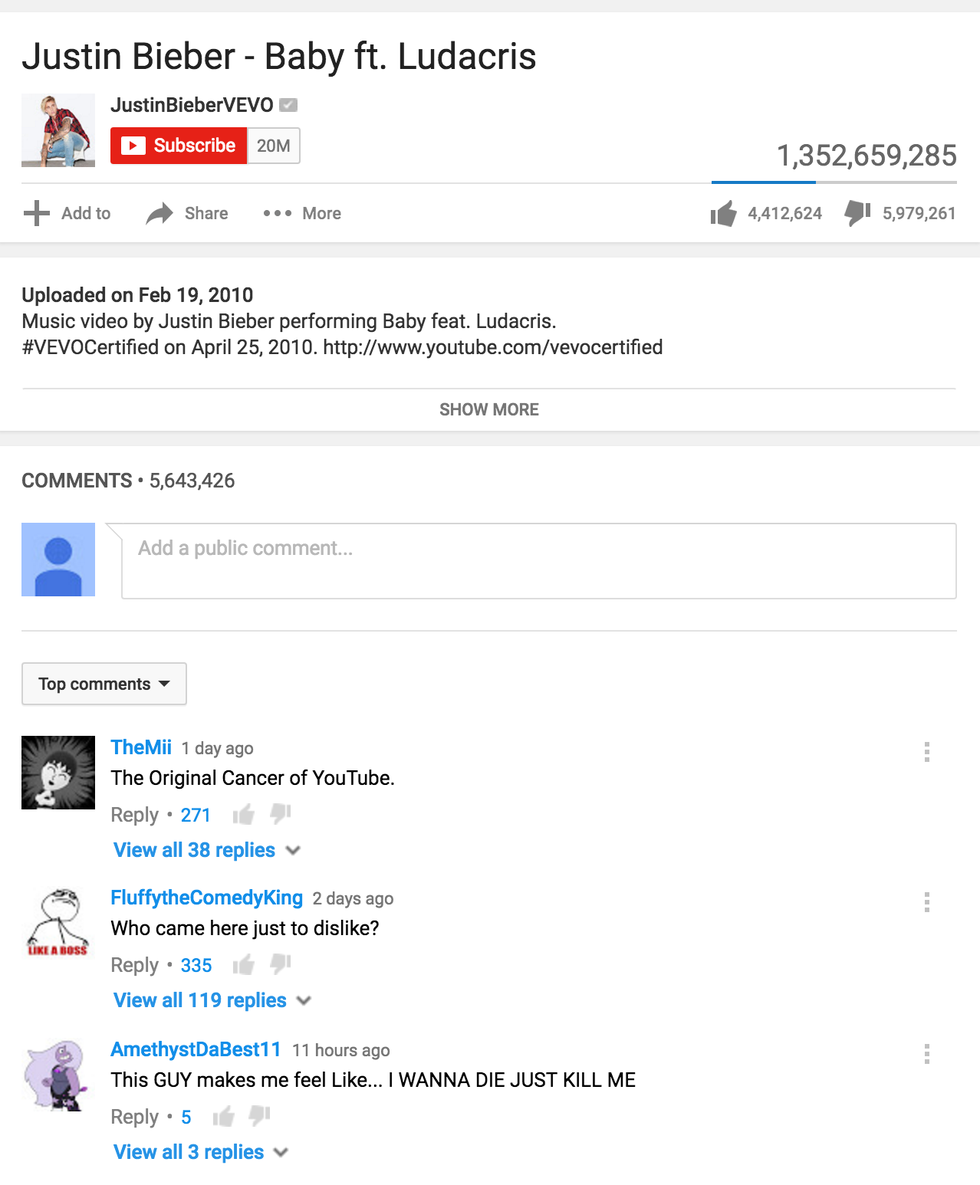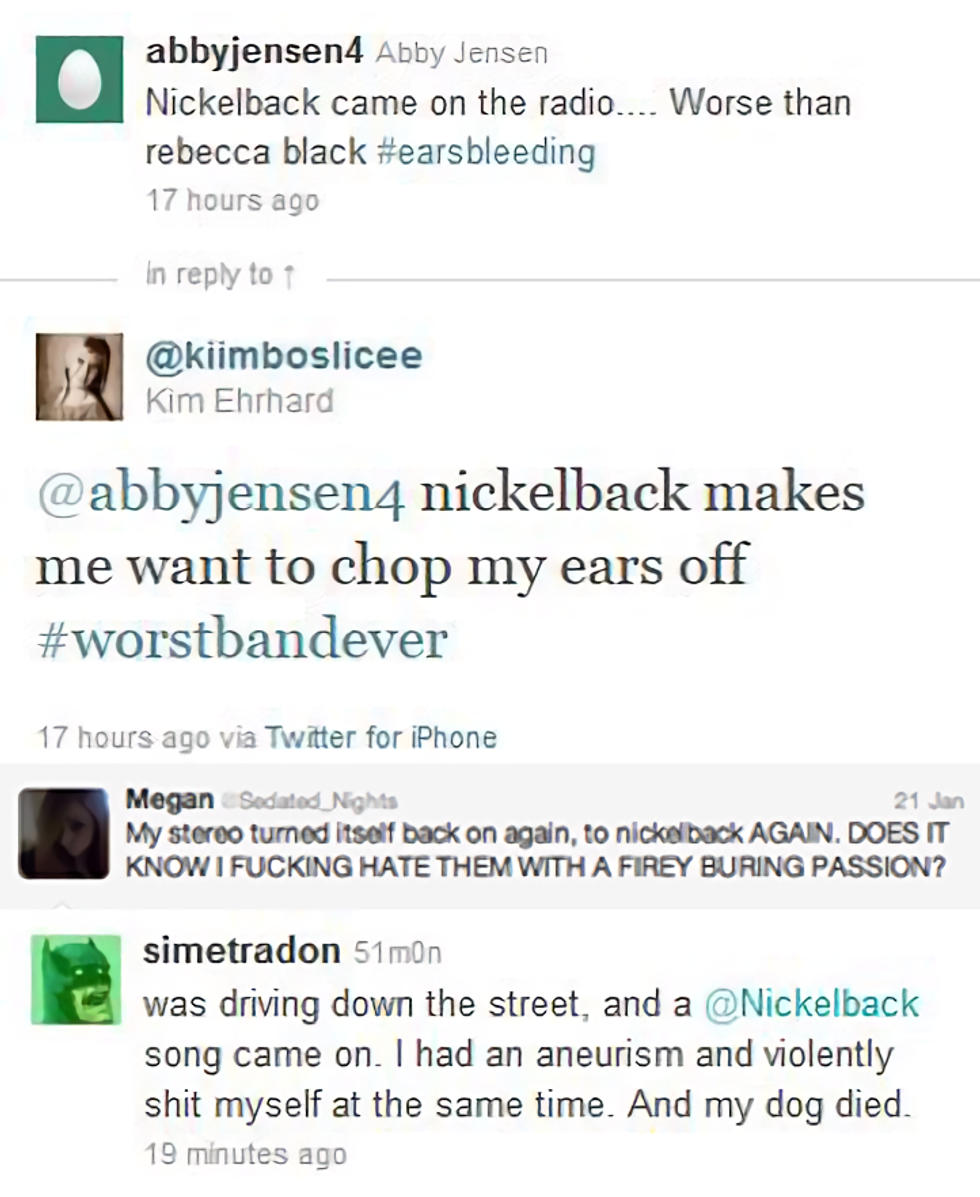The Internet is full of limitless possibilities. You can check up on friends living on the other side of the globe with Facebook, or slap a man in the face with an eel using your mouse (and then post about it on Facebook). So why do we spend so much of our time using it as a personal soapbox?
Open up a popular YouTube video and look at the comments. Now close it. I shouldn’t have made you do that (if you have Chrome, try using this in the future). See what I mean? It doesn’t matter the subject matter. There will be angry people in the comments section. There is far more negativity about TV shows, music and video games than there is positivity.
This video came out more than six years ago. These comments are from a few days ago.
Take Kim Kardashian. Of all of the subjects people get fired up about online, this one makes the least sense. I have heard more about her from people online than I have ever heard in real life. How can you hate someone you don’t know at all, someone who has zero impact on you? It just doesn’t make sense.
It’s popular to hate on the Kardashians or Justin Bieber or the Star Wars prequels. It’s the low-hanging virtual fruit—if you can’t think of anything else funny, just insult Nickelback and you’re set. Some of these jokes are made in jest, but a lot of them are full of vitriol and contempt. The Internet loves to hate.
Demonstrating proper posture for lengthy online arguments
This tendency to blindly lash out at the first mention of something you don’t like has pervaded every single topic online. The Internet has the potential to open new doors for discussion of global news and politics, but instead it is a cesspool of insults, racial slurs and personal attacks. Have an opinion? Someone, somewhere now despises you with their entire being.
The worst part of it, in my opinion, is that this atmosphere of negativity spreads very easily. I get annoyed when I hear Nickelback on the radio now. I can't stand seeing The Big Bang Theory on TV—not because I hate it but because I am so sick of hearing the same old jokes making fun of it. The Internet has ruined movies, games, books and songs for me with its insatiable appetite for shouting the same criticisms over, and over, and over.
The pinnacle of human achievement: tweeting about Nickelback
To some extent, I understand the violent disagreements that occur over politics. But a rational person should not spend so much time angry about celebrities. A rational person should not be furious about the outcome of a sitcom that ended years ago (looking at you, How I Met Your Mother fans). A rational person should not spend hours defending their pure unmitigated hatred of the Big Bang Theory and how it needs to be canceled now—imagine if someone saw you wearing a shirt from Old Navy and started shouting at you about how they should be put out of business, all because they don’t like Old Navy’s shirts. It’s an utterly ridiculous scenario when it’s not over the web. So why does so much of the Internet do nothing but hate?
Maybe that’s just reality. We spend plenty of time talking about positive things in real life. Like soccer: you can join a pick-up soccer league or find fans who follow the same professional teams. There is no club for People Who Are Passionate About Film And Think That Christopher Nolan's Lack of Subtlety Is Ruining Hollywood As We Know It. The Internet becomes that club—giant audiences and near-absolute anonymity give everyone the ability and the courage to shout to the world about how just how bad the dialogue in his movies is.
Likewise, the Internet enables otherwise fully-functional people to spontaneously combust whenever they catch a glimpse of someone who disagrees with them. In the same way that everyone around you on the highway is a frustratingly bad driver, everyone else on the information highway is infuriatingly wrong about everything, and you can’t help but correct them, even when deep down you know you’ll regret it later. Why, whydid I think it was a good idea to reply to my uncle’s Facebook post about Ted Cruz?
In real life, we don’t get to share our thoughts so openly. You can only hold 30 or 40 friends at a time, and it’s tough to find people who share the same passions. When it comes down to it, you just don’t have anyone to rant to about how technically, saying “spoonception” when you put a smaller spoon on top of another one is wrong because the word title Inceptionactually refers to the planting of an idea and not the “dream within a dream” construct. Frustrated about this? Don’t worry—the Internet is there for you.
The Internet gives us an outlet for sharing the negativity nobody wants to hear in casual conversation. Maybe the Internet was created so that millions of people could come together and whine about TV—a receptacle for everyone’s bitterness.
Sometimes I wish it were more, but there are plenty of times I have gotten myself into arguments online and I can’t remember a single one that was important. We all do it: your intentions are noble as you try to defend the sanctity of your favorite presidential candidate, but in the end it just turns into name-calling. Maybe this is the Internet we deserve.





















